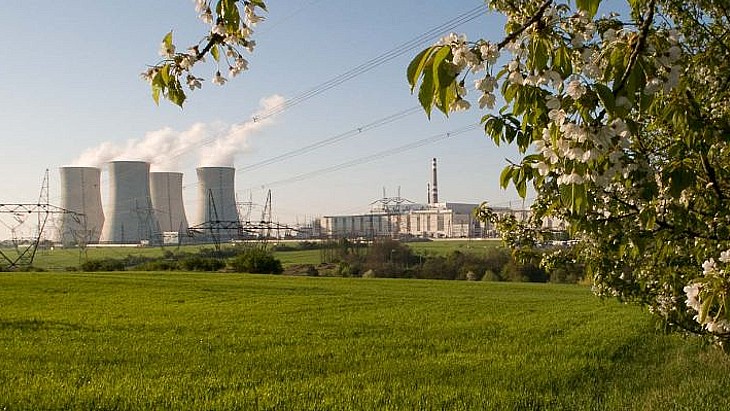The Czech Republic plans to grant direct price support in the form of a power purchasing contract with a state-owned special purpose vehicle, ensuring stable revenues for the planned new nuclear unit at Dukovany for 40 years, with a subsidised state loan to cover a majority of construction costs as well as a "protection mechanism against unforeseen events or policy changes".
The European Commission (EC), in announcing its decision, said that to "ensure that the aid is proportionate and does not unduly distort the functioning of the electricity market" Czechia had "introduced a remuneration formula akin to a two-way contract-for-difference, which provides revenue stability and limits excess remuneration through a yearly ex-post settlement". This effectively means that if electricity prices are below the agreed level, the nuclear project will receive a subsidy to make it up to the agreed price, and if electricity prices are above the agreed price, the nuclear project would pay money back to the government.
The EC also said the period of direct price support had been cut from 60 years to 40 years and the strike price was being set "on the basis of a discounted cash flow model ensuring that the total aid amount, taking into account the subsidised loan, is limited to the funding gap of the project ... EDU II's shareholders will get a rate of return equal to the market return that investors would require on a similar investment".
There will also be a clawback mechanism lasting for the operational lifetime of the plant to ensure "additional gains generated by the project will be shared with the Czech state" and "to avoid market concentration and remove the risk that the measure provides an advantage to certain electricity consumers, Czechia has committed to ensure that at least 70% of the power output will be sold on the open power exchange - namely, day-ahead, intraday and futures markets - over the entire lifetime of the power plant. The rest of output can be sold on objective, transparent and non-discriminatory terms by way of auctions".
Margrethe Vestager, Executive Vice-President in charge of competition policy, said: "Czechia will support the construction of a nuclear power plant in Dukovany. The Commission’s role is to ensure that the State aid proposed is targeted, proportionate and does not unduly affect the EU energy market. During our investigation Czechia has modified the initial measure and submitted substantial commitments. This has allowed us to approve the aid."
The Czech Republic currently gets about one-third of its electricity from the four VVER-440 units at Dukovany, which began operating between 1985 and 1987, and the two VVER-1000 units in operation at Temelín, which came into operation in 2000 and 2002. It is currently going through a tendering process for four new units, with two more planned at each of the existing plants. Korea Hydro & Nuclear Power and France's EDF are the two bidders.





_55401.png)
_23009.jpg)

_33392.jpg)






